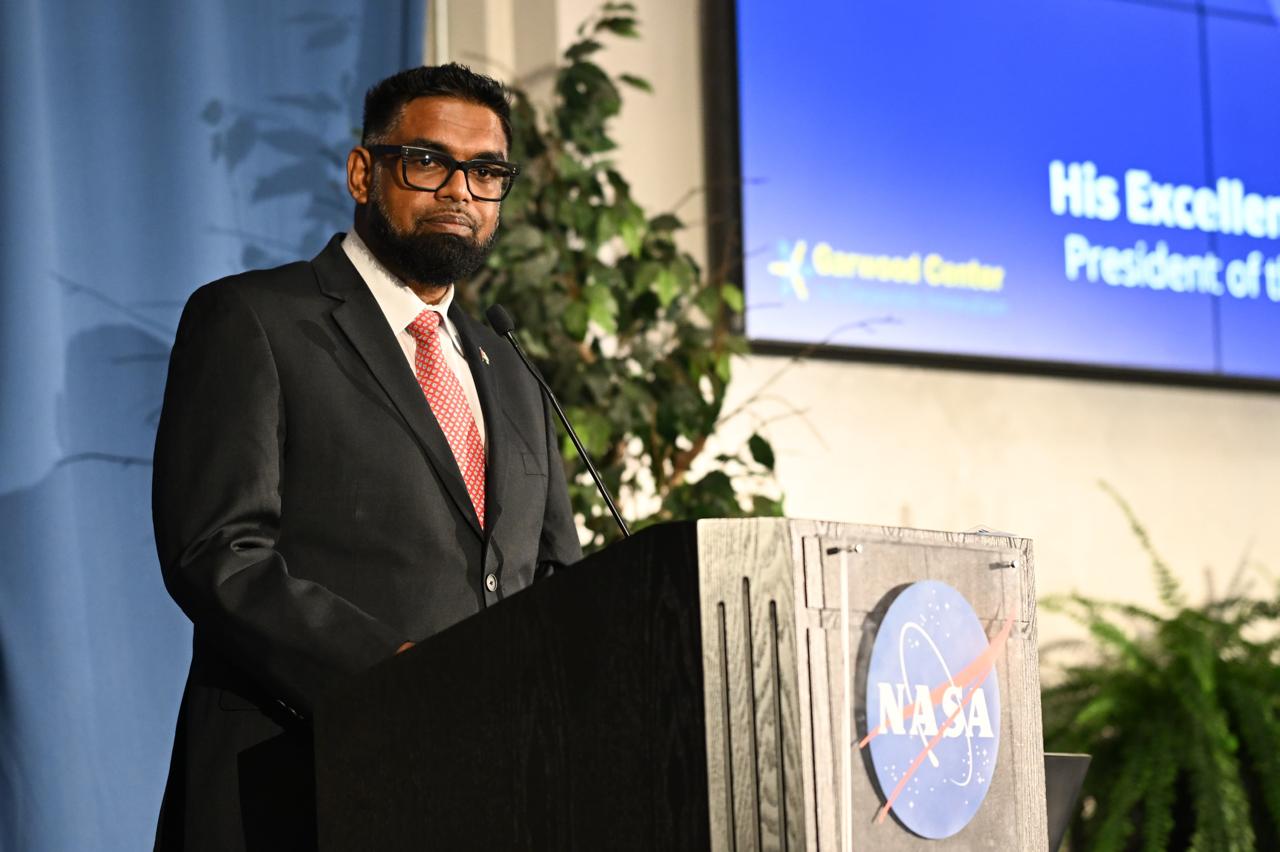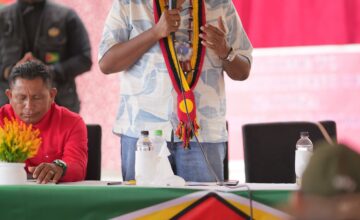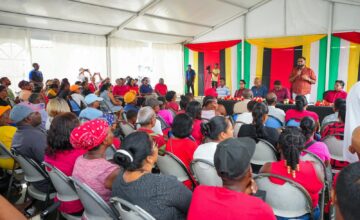
California, USA—(April 4, 2025) His Excellency President Dr Irfaan Ali called for the development of Artificial Intelligence (AI) to serve the common good and ensure its benefits are shared equitably among all nations.
Delivering the keynote address at the Spring 2025 Berkeley Innovation Forum, the Head of State emphasised the transformative potential of AI in bridging geopolitical, economic, and technological divides. He argued that AI, like the planet’s natural resources, should be treated as a collective asset accessible to all.
“Just as the natural resources of the planet—like the atmosphere and oceans—belong to everyone, AI should be considered a collective resource, accessible to all,” President Ali stated.
He explained that fostering international collaboration and open-source models could empower developing nations to advance critical sectors such as healthcare, education, and climate security. However, the President also highlighted the risks of AI monopolisation, warning that without equitable access, the technology could exacerbate global inequalities. “We must resist attempts to erect barriers to the trade in products necessary for digitisation. We must also be vigilant against the erection of barriers restricting access to non-military digital technologies,” he urged.
President Ali spoke extensively on AI’s potential to tackle pressing global issues, including food security, poverty alleviation, and climate sustainability. He noted that AI, ethically deployed for the common good, can optimise agricultural production, reduce food spoilage and waste, and improve supply chain efficiency. Through predictive analytics, AI can forecast weather patterns, detect crop diseases early, and recommend precise irrigation and fertilisation strategies, boosting yields while conserving resources.
The President added that integrating AI into food systems can create a more resilient, productive, and sustainable global food supply.
AI’s role in enhancing sustainability efforts washighlighted, especially how AI-driven analytics can predict extreme weather events, monitor deforestation, and optimise renewable energy grids for greater efficiency. Smart agriculture powered by AI can reduce water and fertiliser waste, while AI-driven circular economy models can minimise industrial emissions.
Quoting former French President François Hollande, he added, “We have a single mission: to protect and hand on the planet to the next generation.”
The President also addressed the widening gap between developed and developing nations in digitisation, stressing the urgent need to bridge this divide. He pointed out that with the rapid pace of AI development, developing countries cannot equitably benefit unless the digital gap is addressed.
However, he cautioned that waiting for this gap to close before embracing AI would only result in developing countries falling further behind the developed world. Instead, he argued, these nations must adopt a dual approach: digitising their economies while simultaneously leapfrogging to the latest AI technologies. By doing so, they can bypass outdated systems, accelerate development, and harness the full potential of AI in key sectors such as healthcare, education, and infrastructure.
To accelerate this process, the President proposed initiatives such as promoting open-source AI tools to reduce costs and foster local innovation, establishing an AI investment fund to support projects in developing nations, and ensuring AI development adheres to fairness, privacy, and human rights principles.
President Ali emphasised that technology alone cannot drive progress without a guiding vision. He warned that without oversight, advancements in technology often reinforce inequalities or become tools of exploitation rather than empowerment. He called for AI to prioritise equity and inclusion over profit and power, ensuring the technology serves humanity.
“AI must serve rather than replace humans. It must empower rather than exploit and uplift rather than marginalise,” he declared.
The President also underscored AI’s potential to unify a divided world, stating that the future need not be a tale of the technologically rich and the digitally poor. Instead, innovation must lift every nation, community, and individual. “Let us seize it, shape it, and share it—because a future driven by AI should be one where no one is left behind.”
During his visit to California, President Ali was also presented with the University of California, Berkeley’s Global Leadership Award. The award recognises President Ali’s transformative leadership, particularly his workadvancing environmental sustainability and inclusive economic development.


